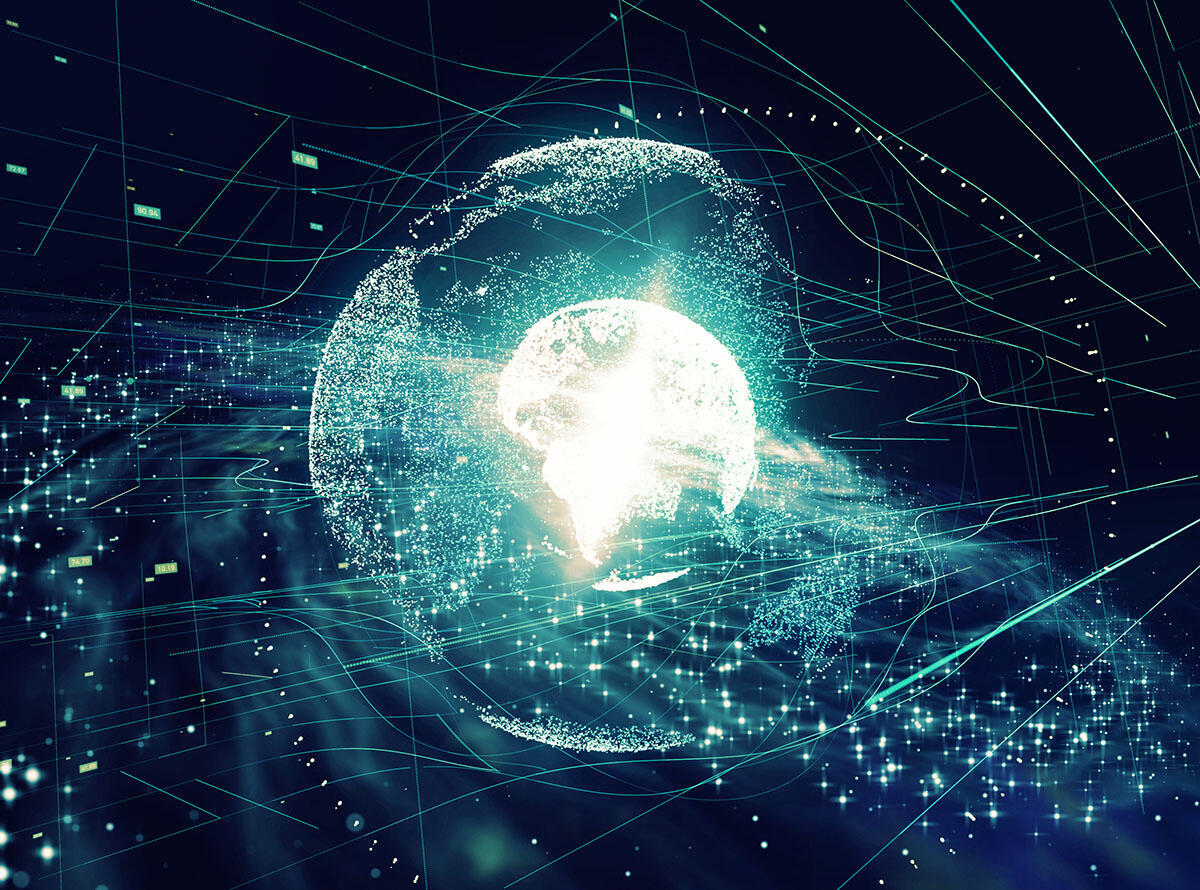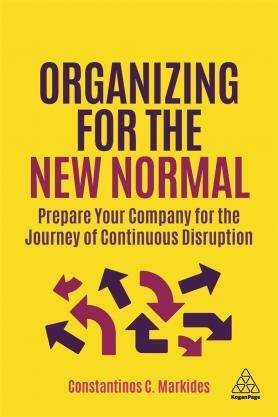Be better prepared for the next transformative journey, because it may come while the current transformation is still in play, a London-based, global top strategist tells TechRepublic.

Image: iStock
Whether it’s a bump in the road or a tidal wave of change, organizations must accept that once a hurdle has been handled, there will be another, close on its heels. In other words, if the COVID-19 pandemic has taught us anything, it’s the fast-paced nature of sudden change. Businesses cannot rest on their success in dealing with the pandemic, but accept the cyclical nature of disruption.
“The ‘new normal’ for organizations is a context where we have to face disruption after disruption,” said Constantinos C. Markides, a world-renowned strategist and professor of strategy and entrepreneurship at the London Business School. Markides’ latest book, available on Amazon, is “Organizing for the New Normal: Prepare Your Company for the Journey of Continuous Disruption.”
Preparing your organization for the next disruption is the challenge that every organization is now facing, no matter how successful their digital transformation of the past year has been, and this is what Markides insists is critical for business leaders to succeed in their next challenge.
SEE: COVID-19 workplace policy (TechRepublic Premium)
“The pace of change is so fast that before we had a chance to respond or adjust to one disruption, another one hits,” Markides said. “We may now be getting used to life with COVID-19, and we may be reaching some level of stability with the situation, but the next disruption is just around the corner.”
He warned: “The challenge for organizations is not to just respond to a disruption, however devastating it might be. The challenge is to prepare and organize for a world of continuous and overlapping disruptions.”
And Markides is well aware of the successes many organizations had at the start of the pandemic, when no one realized the severity of the situation, how long it would last and just how impactful it would be.
“The biggest surprise for me was how quickly we adjusted to this particular disruption and how collective the effort was in fighting it,” he said. “To develop and commercialize vaccines for this virus in less than a year, rather than the expected 10 years, is nothing short of miraculous.”

“Organizing for the New Normal” by Constantinos C. Markides
Image: Kogan Page
Success can be attributed to a collaborative effort. “To get so much cooperation among companies and countries in our fight against it is also admirable. And for organizations to adjust to the new reality of home working so smoothly and so quickly is quite impressive. I was surprised by all of this because we’ve had disruptions in the past and we did not see such a collective or effective effort in responding to them. Even with some other disruptions that we are currently facing, such as climate change, you do not see the same admirable response. As far as my research was concerned, I think the fundamental challenges facing companies in the new normal that I discuss in my book, such as how to embed agility in the DNA of the organization or how to create a constant and positive sense of urgency, are still valid after the pandemic.”
He also highlighted resilience and rebound during COVID: “The pandemic has shown that human beings as well as societies are much more resilient than we thought. Look at how quickly we have all adjusted to working from home. Look at how quickly national economies are rebounding from the economic effects of the pandemic.”
Still, Markides cautioned, “However, the specific ways through which you address these challenges, we will have been affected by the pandemic.”
SEE: Research: Digital transformation plans shift due to COVID-19 (TechRepublic Premium)
There is a historical context to consider, said Markides. “We had pandemics in the past. We also had great world wars, as well as other major catastrophes and disruptions. There’s no reason to think that we will not have major catastrophes in the future. I am sure we will. The problem is we don’t know what major disruption will hit us or when or how. The best way to prepare for the unknown is to remain agile so that we are ready to respond whenever. The other thing we know is important is attitude. People and organizations that approach disruptions with a positive attitude tend to do better in their responses. Educating people to develop a positive attitude is probably the best way to prepare for the next disruption.”
In addition to how well everyone adjusted to the work and lifestyle changes the pandemic brought, he said, “I was also surprised at how well people in every part of the world handled lockdowns, without too much resistance or objections. I am still surprised at how well China came out of the pandemic, and I would like to learn from that experience.”
The future workplace will correlate to the roles the employees have in their workplaces. According to Markides: “The most immediate thing that we will see is the emergence of the hybrid working environment. Every company will adopt the hybrid model that is most appropriate, but the key elements of this new model will be that we will be working a few days at home and a few days in the organization.”
SEE: Analytics: Turning big data science into business strategy (ZDNet/TechRepublic special feature) | Download the free PDF version (TechRepublic)
Additionally, “some types of employees, such as back-office staff, will be working more from home than at the office while some other types of employees, such as people working in customer-facing roles, will be working more at the office than at home.”
He concluded: “One of the lessons to emerge from the pandemic is the importance of technology in helping us carry on our lives from home and in finding a solution to the disease,” and this revelation will resonate with him for his next book. “I’d like to leverage this insight in my next book to examine how we can use new technologies and new business models to solve other big social problems such as climate change, inner-city crime, pollution and the like. The world is facing numerous social problems, and it is important to use the learning from fighting COVID-19 to develop ideas and solutions to these problems.”
Also see
Stay connected with us on social media platform for instant update click here to join our Twitter, & Facebook
We are now on Telegram. Click here to join our channel (@TechiUpdate) and stay updated with the latest Technology headlines.
For all the latest Technology News Click Here
For the latest news and updates, follow us on Google News.

